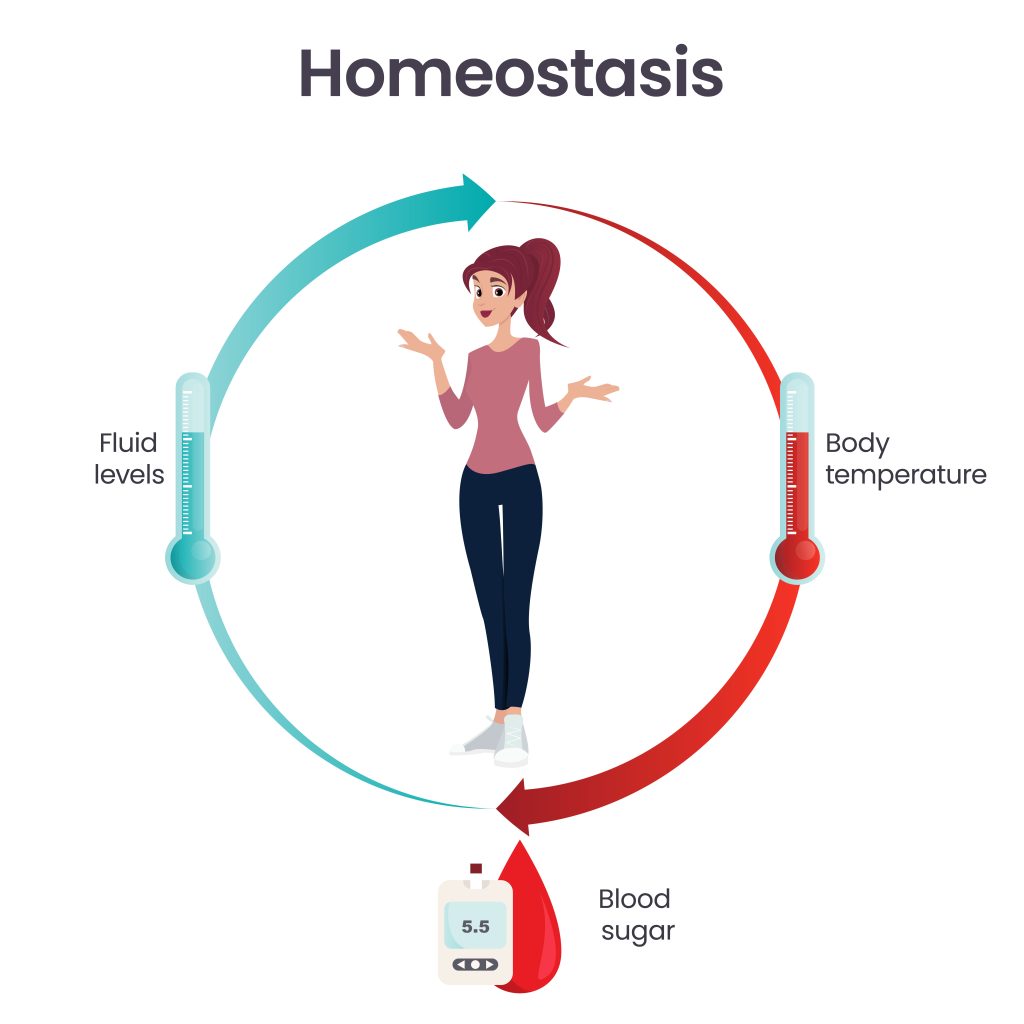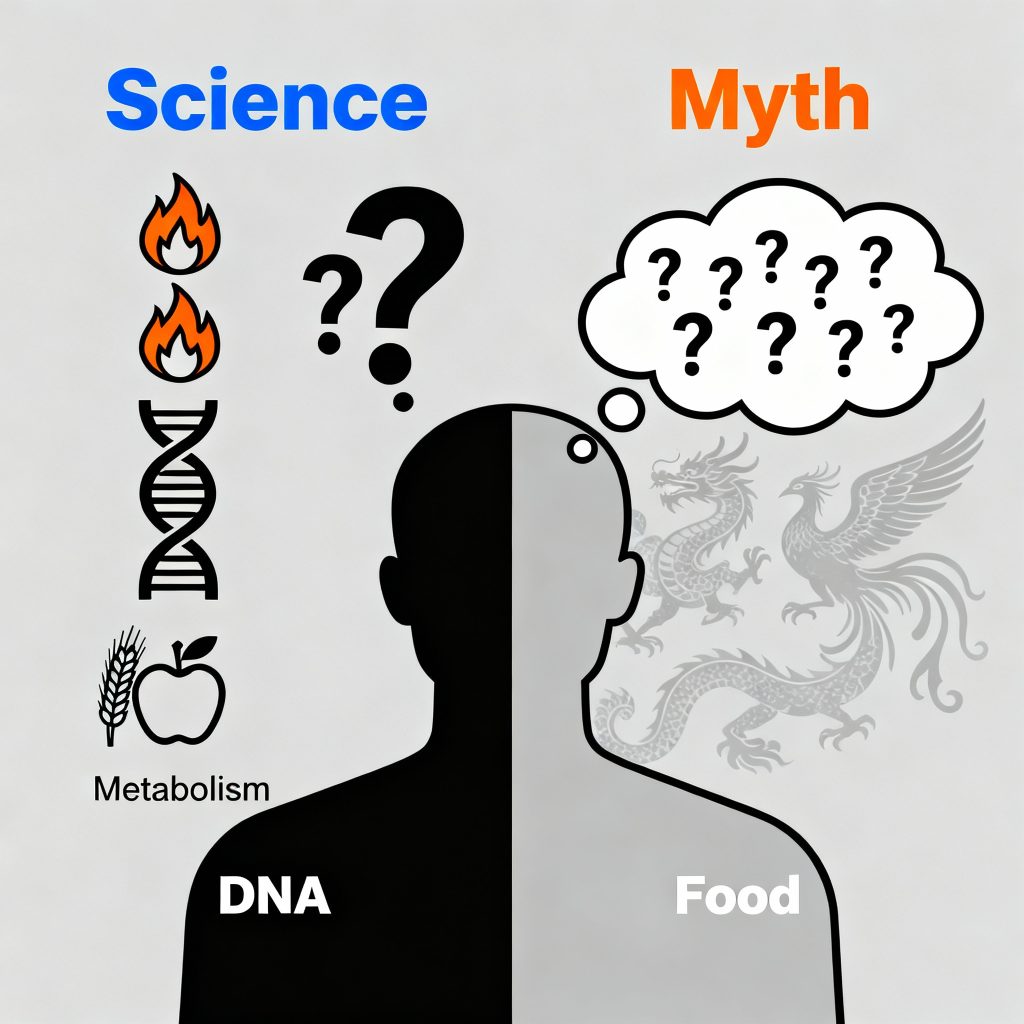Metabolism: Facts, Not Fads
Metabolism is often used as a scapegoat for stubborn weight or credited for effortless leanness. If you’ve ever blamed your weight gain on a slow metabolism or chased fad diets promising to boost metabolism, you’re not alone. Many people search online to learn how to boost metabolism naturally — but few understand the science behind it.
But nutrition science tells a different story. Metabolism is intricate, often misunderstood, yet fascinating. If you’re tired of metabolism-boosting miracle pills and restrictive fad diets, you’re reading an appropriate piece of information. Let’s strip away the metabolism myths and get to the core scientific facts about your body’s engine. This blog dives into the facts—no gimmicks, no pseudoscience.
What Metabolism Really Is

In its simplest form, metabolism is the sum of all chemical processes by which our body converts food into energy. It powers everything from breathing and circulating blood to repairing cells. It’s happening 24/7—even when we’re asleep.
It’s our body’s energy-management system. It takes the foods that increase metabolism — nutrient-dense, balanced meals — and converts them into the energy our body needs for everything.
Our total energy outflow or the calories burned each day is made up of three main components:
- Basal Metabolic Rate (BMR): This is the biggest part constituting around 60–75%. It’s the energy our body needs just to exist at rest to maintain vital functions like keeping our heart beating, lungs breathing, and organs functioning.
- Thermic Effect of Food (TEF): This is the energy used to digest, absorb, transport, and store the nutrients from our food. It accounts for about 10% of our daily calorie burn.
- Physical Activity: This is the most variable part. It includes physical exercise, but also Non-Exercise Activity Thermogenesis (NEAT)—things like basic movements we do: household chores, walking around the house, gardening, etc.
Myth Busters: Separating Science from Speculation

The diet industry thrives on the idea that our metabolism is a fragile, easily “broken” or “stoked” fire. The science tells a different story, and understanding metabolism facts weight loss can help you make smarter choices.
Metabolism Myth: I have a slow metabolism, that’s why I can’t lose weight.
The Scientific Fact: While genetics play a role, slow metabolism causes are rarely the main reason for significant weight gain. The primary driver is an imbalance between calories consumed and calories burned. Most variations in BMR are due to differences in body size and composition.
Metabolism Myth: Eating six small meals a day will fire up my metabolism.
The Scientific Fact: The total calories burned through digestion (TEF) depend on the total amount of food eaten, not the frequency of our meals. Whether we eat three large meals or six small ones, the overall TEF is largely the same.
Metabolism Myth: Starving myself will force my metabolism to speed up.
The Scientific Fact: The opposite is true. Severe calorie restriction signals to our body that food is scarce. Our body, being incredibly smart, adapts by going into a form of starvation mode, drastically slowing down our BMR to conserve energy. This is why crash diets often lead to weight regain.
Metabolism Myth: There’s a miracle food or supplement that will dramatically boost my metabolism.
The Scientific Fact: Foods that increase metabolism—like green tea, coffee, and chili peppers—can cause a minor, temporary increase in calorie burn, but the effect is minimal without proper diet and exercise.
Metabolism Myth: Metabolism decline with age is unavoidable.
The Scientific Fact: Metabolism does slow as we age, but not simply because of age. The decline is often primarily due to a natural loss of muscle mass and lower physical activity.
How to Truly Support a Healthy Metabolism
Instead of chasing fads, focus on these science-backed, sustainable habits that truly teach you how to boost metabolism naturally and effectively.
- Prioritize Protein: Protein has the highest Thermic Effect of Food and helps maintain lean muscle, which is the most metabolically active tissue in our body.
- Build and Maintain Muscle: Muscle burns more calories at rest than fat tissue. Strength training is one of the best long-term foods that increase metabolism substitutes since it boosts your resting calorie burn.
- Stay Active: Small daily movements—walking, standing, and house chores—add up and make a major difference.
- Don’t Skimp on Sleep: Poor sleep affects hormones that control hunger and satiety, contributing to slow metabolism causes over time.
- Eat Enough Calories: Extreme dieting backfires. A balanced, nutrient-rich diet supports natural energy use and sustainable metabolism facts weight loss outcomes.
Bottom Line
Our metabolism is not a switch we can flip with a magic pill. It responds best to consistent, healthy habits. By focusing on building muscle, eating enough protein, and staying active, we can move beyond metabolism myths and give our body the proven care it needs for lasting metabolic health.
With these consistent habits and smart choices, you can master how to boost metabolism naturally and maintain your body’s energy balance for life.















